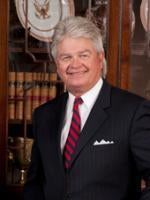As part of our recent newsletter regarding the passage of the SECURE Act (here), we noted that, effective as of January 1, 2020, the age for determining the required beginning date for required minimum distributions (RMDs) increased from age 70 ½ to age 72. Additionally, plan sponsors have the discretion to permit in-service distributions for birth or adoption related expenses, subject to certain limitations.
One side effect of these changes that a plan sponsor may not have considered is that they likely require updates to their plan's special tax notice (or 402(f) notice). The special tax notice is required to be furnished to any recipient of an eligible rollover distribution and summarizes tax considerations with respect to electing whether to rollover such a distribution to an IRA or qualified retirement plan.
The IRS model special tax notice was last updated by Notice 2018-74, prior to the passing of the SECURE Act, and a new model notice has not yet been issued. However, a diligent plan sponsor should consider updating their notice for the following:
-
The model notice specifically references the RMD age of 70 ½ in a number of places. These references should be updated to reflect the increase to age 72 for those participants who attain age 70 ½ after December 31, 2019.
-
Additionally, the model notice lists those instances where the 10% additional tax on early distributions does not apply to a distribution that is not rolled over. As the inservice birth or adoption distribution added by the SECURE Act is not subject to the 10% excise tax, a plan sponsor may want to consider adding such distributions to this list, especially if the plan sponsor amends its qualified retirement plan to permit such distributions. Note, however, that in our experience, plan sponsors are generally waiting to add this feature to their plans until the IRS issues additional guidance on the administration of the birth or adoption distribution.
In light of these changes, plan sponsors should ask their third party administrators (or whomever prepares their plan's special tax notice) to update the special tax notice for their plan, if they have not already done so.






 />i
/>i

